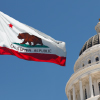New Federal Tax Credit May Result in Greater Funding for Private Schools

August 20, 2025
Number 35
In a victory for school choice advocates, the One Big Beautiful Bill Act (OBBB), signed into law by President Donald Trump on July 4, 2025, introduces a new tax credit available to individual taxpayers who make “qualified contributions” to Scholarship Granting Organizations (SGOs).
Contributions to SGOs differ from conventional school voucher programs in certain key respects. School vouchers are state financial obligations that parents can give to a private school of their choice. The private school redeems the voucher to obtain money from the state. Many states do not allow vouchers to be given to religious schools because their state constitutions prohibit the channeling of state money to religious institutions.
For contributions to SGOs for parochial schools, when paired with offsetting tax credits or tax deductions for contributions, the OBBB avoids the issue of direct state support of religious institutions by having the state subsidy accrued to taxpayer donors, not the SGO. The use of SGOs to support religious institutions has withstood legal challenges on federal and state constitutional grounds in other states.
If California elects to participate in the tax credit program (as further explained below), SGOs in the State will likely see an influx of scholarship funding, potentially leading to increased private school enrollment and a corresponding decrease in public school attendance.
States Must Opt-In
Each year, beginning January 1, 2027, the governor of each state may voluntarily elect to participate in the new tax credit program. To opt-in, a state’s governor is required to notify the U.S. Secretary of the Treasury and provide a list of the SGOs located in their state that meet the requirements of the OBBB and are able to receive “qualified contributions” from individual federal income taxpayers.
As of July 23, 2025, Governor Newsom and California state officials have not yet made any public indications as to whether California will opt-in to participate in the new tax credit program.
Eligibility Requirements for SGOs
A “qualified contribution” is defined as a charitable contribution of cash to an SGO that uses the contribution to fund scholarships for “eligible students” solely within the state where the SGO is listed.
To be included on a governor’s list and be eligible to receive the “qualified contributions,” the OBBB requires that each SGO must meet certain requirements including spending at least 90% of its income on scholarships for “eligible students,” not earmarking or setting aside contributions for scholarships on behalf of any particular student, and not providing scholarships for any expense other than “qualified elementary or secondary education expenses.”
An “eligible student” who can receive a scholarship from a participating SGOs must be eligible to enroll in a public elementary or secondary school and be from a household with a combined income less than 300% of the area media gross income. The “qualified elementary or secondary education expenses” that the scholarship can be used for are defined as all of those expenses permissible under 26 U.S. Code § 530(b)(3)(A) and include, among other things, tuition and fees of a private or religious school and also the expenses for books, supplies, transportation, and other equipment in connection with the attendance of an elementary school student at a public, private, or religious school.
Up to $1,700 Tax Credit Available
Individuals paying federal income taxes will be permitted to receive a non-refundable federal income tax credit each year for up to $1,700 of “qualified contributions” to SGOs that the taxpayer makes during the taxable year. Tax credits, unlike tax deductions, reduce federal income tax liability on a dollar-for-dollar basis. Because of the offset to a taxpayer’s federal income tax liability, so long as the requirements of the OBBB are otherwise met, the taxpayer’s “qualified contribution” to an SGO is effectively free of cost to the taxpayer and fully subsidized by the federal government.
Notably, the OBBB does not currently limit these contributions to SGOs within the taxpayer’s home state. Under the OBBB, federal income taxpayers in California may be able to receive the new federal tax credit for their “qualified contributions” to an out-of-state SGO.
The new tax credit program does not have an expiration date.
Takeaways
This program is being hailed as a school voucher program on a national level. The tax credits in effect allows taxpayers to satisfy a portion of their federal tax liability by making “qualified contributions” to an SGO instead of paying those amounts to the federal government. The SGOs can use the “qualified contributions” they receive to give scholarships for tuition and other expenses for public, private, and religious schools.
If California opts-in, the new scholarship program represents a significant windfall for school choice advocates within California and the schools they support. Scholarships from SGOs that reduce the costs to attend religious and private schools make those schools comparatively more attractive to students.
The benefits of the new scholarship program would not be limited to religious and private schools. SGOs could also use the “qualified contributions” they receive to provide scholarships to public school students (including charter school students) to be used for “qualified elementary or secondary education expenses,” such as books and supplies that are not otherwise provided.
Lozano Smith will continue to monitor California’s response to this scholarship program ahead of the January 1, 2027 effective date.
If you have any questions about new federal tax credit, or to discuss any other school choice issue, please contact the authors of this Client News Brief or an attorney at one of our eight offices located statewide. You can also subscribe to our podcast, follow us on Facebook and LinkedIn, or download our mobile app.
Number 35
In a victory for school choice advocates, the One Big Beautiful Bill Act (OBBB), signed into law by President Donald Trump on July 4, 2025, introduces a new tax credit available to individual taxpayers who make “qualified contributions” to Scholarship Granting Organizations (SGOs).
Contributions to SGOs differ from conventional school voucher programs in certain key respects. School vouchers are state financial obligations that parents can give to a private school of their choice. The private school redeems the voucher to obtain money from the state. Many states do not allow vouchers to be given to religious schools because their state constitutions prohibit the channeling of state money to religious institutions.
For contributions to SGOs for parochial schools, when paired with offsetting tax credits or tax deductions for contributions, the OBBB avoids the issue of direct state support of religious institutions by having the state subsidy accrued to taxpayer donors, not the SGO. The use of SGOs to support religious institutions has withstood legal challenges on federal and state constitutional grounds in other states.
If California elects to participate in the tax credit program (as further explained below), SGOs in the State will likely see an influx of scholarship funding, potentially leading to increased private school enrollment and a corresponding decrease in public school attendance.
States Must Opt-In
Each year, beginning January 1, 2027, the governor of each state may voluntarily elect to participate in the new tax credit program. To opt-in, a state’s governor is required to notify the U.S. Secretary of the Treasury and provide a list of the SGOs located in their state that meet the requirements of the OBBB and are able to receive “qualified contributions” from individual federal income taxpayers.
As of July 23, 2025, Governor Newsom and California state officials have not yet made any public indications as to whether California will opt-in to participate in the new tax credit program.
Eligibility Requirements for SGOs
A “qualified contribution” is defined as a charitable contribution of cash to an SGO that uses the contribution to fund scholarships for “eligible students” solely within the state where the SGO is listed.
To be included on a governor’s list and be eligible to receive the “qualified contributions,” the OBBB requires that each SGO must meet certain requirements including spending at least 90% of its income on scholarships for “eligible students,” not earmarking or setting aside contributions for scholarships on behalf of any particular student, and not providing scholarships for any expense other than “qualified elementary or secondary education expenses.”
An “eligible student” who can receive a scholarship from a participating SGOs must be eligible to enroll in a public elementary or secondary school and be from a household with a combined income less than 300% of the area media gross income. The “qualified elementary or secondary education expenses” that the scholarship can be used for are defined as all of those expenses permissible under 26 U.S. Code § 530(b)(3)(A) and include, among other things, tuition and fees of a private or religious school and also the expenses for books, supplies, transportation, and other equipment in connection with the attendance of an elementary school student at a public, private, or religious school.
Up to $1,700 Tax Credit Available
Individuals paying federal income taxes will be permitted to receive a non-refundable federal income tax credit each year for up to $1,700 of “qualified contributions” to SGOs that the taxpayer makes during the taxable year. Tax credits, unlike tax deductions, reduce federal income tax liability on a dollar-for-dollar basis. Because of the offset to a taxpayer’s federal income tax liability, so long as the requirements of the OBBB are otherwise met, the taxpayer’s “qualified contribution” to an SGO is effectively free of cost to the taxpayer and fully subsidized by the federal government.
Notably, the OBBB does not currently limit these contributions to SGOs within the taxpayer’s home state. Under the OBBB, federal income taxpayers in California may be able to receive the new federal tax credit for their “qualified contributions” to an out-of-state SGO.
The new tax credit program does not have an expiration date.
Takeaways
This program is being hailed as a school voucher program on a national level. The tax credits in effect allows taxpayers to satisfy a portion of their federal tax liability by making “qualified contributions” to an SGO instead of paying those amounts to the federal government. The SGOs can use the “qualified contributions” they receive to give scholarships for tuition and other expenses for public, private, and religious schools.
If California opts-in, the new scholarship program represents a significant windfall for school choice advocates within California and the schools they support. Scholarships from SGOs that reduce the costs to attend religious and private schools make those schools comparatively more attractive to students.
The benefits of the new scholarship program would not be limited to religious and private schools. SGOs could also use the “qualified contributions” they receive to provide scholarships to public school students (including charter school students) to be used for “qualified elementary or secondary education expenses,” such as books and supplies that are not otherwise provided.
Lozano Smith will continue to monitor California’s response to this scholarship program ahead of the January 1, 2027 effective date.
If you have any questions about new federal tax credit, or to discuss any other school choice issue, please contact the authors of this Client News Brief or an attorney at one of our eight offices located statewide. You can also subscribe to our podcast, follow us on Facebook and LinkedIn, or download our mobile app.
As the information contained herein is necessarily general, its application to a particular set of facts and circumstances may vary. For this reason, this News Brief does not constitute legal advice. We recommend that you consult with your counsel prior to acting on the information contained herein.







